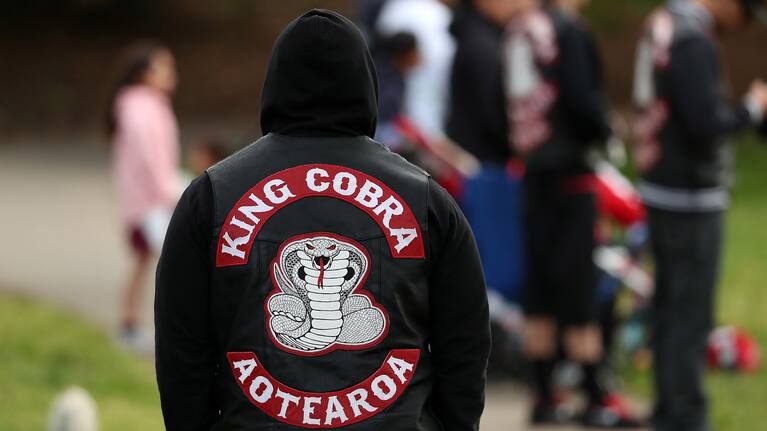National leader and Prime Minister-elect Christopher Luxon said his plan to ban gang patches in public will be enforceable.
Passing a law to ban gang patches in public is part of National's 100-day plan once it's in government.
Gang patches are already banned in schools, hospitals, courts and other premises managed by either central or local government.
Pressed on what a gang patch is to him, Luxon told Breakfast this morning: "A gang patch, an insignia on the back of someone's jacket and everything we've talked about, is well understood in New Zealand."
"It's happened in Queensland, it's happened in Western Australia, we've done it already in New Zealand about banning gang patches in public places like hospitals and schools and courtrooms. All we're doing is expanding it into public places."
He said the National Party is "confident" police will be able to enforce the law.

"It's about intimidation, and New Zealanders get that and they understand that," he said.
"I trust our police to actually make good judgement around how to enforce the legislation that we pass in Parliament.
"I can guarantee the rules will be clear."
An attempt to ban gang insignia in Whanganui 10 years ago was ruled unlawful. (Source: 1News)
Asked about concerns around breaching peoples' rights Luxon said gang members would have a harder time under a National government and he had "no qualms" about the plan.
"Gang members want the rights of being Kiwis but they're not prepared to take the responsibilities of being Kiwi," Luxon said.
"They breach their rights as New Zealanders each and every day, peddling misery and pain and suffering on Kiwi families with drugs and all sorts of things... To earn a gang patch, you have to have done something intimidating and violent often.
"We need to restore law and order, we need to restore personal responsibility."
The law behind the ban
Human rights lawyer Michael Bott believes the ban is a breach of personal expression, meaning it would be unlawful.
"Freedom of expression means to be able to express things that are popular but also unpopular," he said.
Bott said a judge may still rule that National's ban is unlawful.
The New Zealand Bill of Rights Act 1990 states that everyone has the right to freedom of expression, which is why the ban that Whanganui tried to impose in 2009 was ruled unlawful by a High Court judge.
However, while councils have to abide by the Bill of Rights, central government does not.
"It's a symbolic marker that the New Zealand government has run foul of its international law obligations in terms of human rights, but also in terms of its own national bill or rights," Bott said.




















SHARE ME